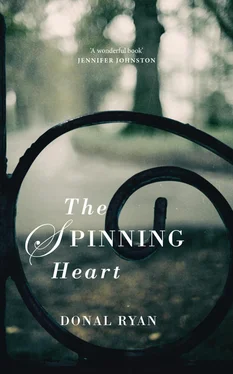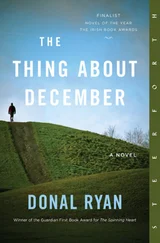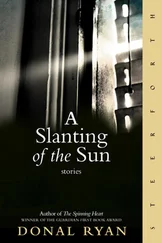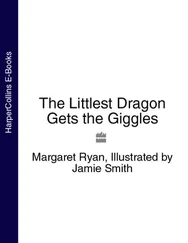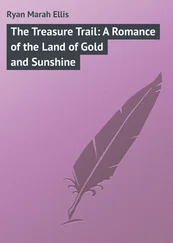Donal Ryan - The Spinning Heart
Здесь есть возможность читать онлайн «Donal Ryan - The Spinning Heart» весь текст электронной книги совершенно бесплатно (целиком полную версию без сокращений). В некоторых случаях можно слушать аудио, скачать через торрент в формате fb2 и присутствует краткое содержание. Год выпуска: 2012, Издательство: Transworld Ireland, Жанр: Современная проза, на английском языке. Описание произведения, (предисловие) а так же отзывы посетителей доступны на портале библиотеки ЛибКат.
- Название:The Spinning Heart
- Автор:
- Издательство:Transworld Ireland
- Жанр:
- Год:2012
- ISBN:нет данных
- Рейтинг книги:4 / 5. Голосов: 1
-
Избранное:Добавить в избранное
- Отзывы:
-
Ваша оценка:
- 80
- 1
- 2
- 3
- 4
- 5
The Spinning Heart: краткое содержание, описание и аннотация
Предлагаем к чтению аннотацию, описание, краткое содержание или предисловие (зависит от того, что написал сам автор книги «The Spinning Heart»). Если вы не нашли необходимую информацию о книге — напишите в комментариях, мы постараемся отыскать её.
The Spinning Heart
The Spinning Heart — читать онлайн бесплатно полную книгу (весь текст) целиком
Ниже представлен текст книги, разбитый по страницам. Система сохранения места последней прочитанной страницы, позволяет с удобством читать онлайн бесплатно книгу «The Spinning Heart», без необходимости каждый раз заново искать на чём Вы остановились. Поставьте закладку, и сможете в любой момент перейти на страницу, на которой закончили чтение.
Интервал:
Закладка:
MY CHICKENS are gone woeful fat. Eileen says I leave them in too much corn altogether. She doesn’t know that I also pick big caterpillars off of the cabbages and feed them in to the old fatsos. They see me coming and get into a right flap. They’re the fattest, happiest chickens in Ireland, I’d say. I have a daughter too, you know. I can’t bear talking to her any more. I used to think she was the bee’s knees, but now I’d rather feed caterpillars to chickens than talk to her. What sort of a man am I at all? If you heard the rubbish she talks, though, about poverty and Palestine and carbon dioxide and Tibetan monks and what have you. And if you saw the cut of her — no bra, men’s army pants, big auld boots — you’d rather look at chickens, too. I don’t feel guilty about her at all. Isn’t that awful?
I served my time in the sixties as a block-layer beyond in Liverpool, in a firm belonging to a great big fat fella from south Tipp. He was a horrible, ignorant man. I had no digs sorted out for myself when I got over there. He gave me my start on my first day off of the boat. I asked him where would I stay and he laughed at me, a big, fat, wet laugh. I don’t know in the fuck, he said, and I don’t care, once you’re here in the morning at seven. I sat on the steps of a locked-up church all that night, frozen with the cold, and scared of every shadow. I wondered was it a Protestant church. I wondered what was the difference. I learnt my trade quickly, and didn’t mess around. I hardly ever drank; it sapped the strength from men and made them forget themselves. I overtook that big fat man from Cashel. I went out on my own and put in for every job going. I brought four or five boys with me who I knew wouldn’t argue with me. I undercut the prick all over Liverpool. He died of a heart attack at the door of a pub in Warrington. People stepped out over his body. I laughed when I heard. Then I thought more about it and felt sick. But at least my laugh had been heard and noted. I was hard.
I came home and never stopped working. I bought the yard and a site and built a house and bought machinery and married Eileen and worked and worked and worked. I never stopped going. All through the seventies and eighties, I hardly drew breath. I built a beautiful estate of bungalows on a lovely site when no one else was building private estates. It was I started all that. I fell into the drink one time, for about six months. To this day, I don’t know why. I ended up trying to force myself on a woman. She got away from me easily enough. I laughed at her and went back to my drink and saw men looking at me with satisfaction in their eyes. I knew then to stop drinking. I often thought to find that woman I handled roughly and say I was sorry. I often wondered did she know I had a wedding ring inside in my pocket and a pregnant wife at home crying over me. I wonder does she hate me still.
JOSEPH BURKE was my father’s name too. Second sons were named for their fathers in those days as a rule. Second sons got a name and first sons got everything else. My father made us all afraid of dishonesty. The devil loves lies, he always said. The devil loves liars. It wasn’t from me that Pokey learned deceit. He never paid in those boys’ stamps. Imagine that. I used to have that done every year before January would be out. The Revenue Commissioners are roaring for VAT, the sub-contractors are arriving to the door with invoices every day. Honest men, who know only work, white with the shock of the sudden stop that everything is after coming to. When I think about it, what people must be thinking and saying, I can hear my heart beat in my chest. I can feel a hardness, a tight pressure. I think of a hose with too great a flow through it, stretched and strained. Sweat starts to sting my forehead. Eileen says nothing. What’s there to say? Her silence comforts me. If she blamed me, she’d say it. Who’s to blame when a child turns rotten?
That’s the thing though. Did he turn bad or did he start out that way? Either way it’s my fault. There’s no getting away from it. I’m the boy’s father. His nature and his nurture were both down to me, when all is said and done. He got no badness from his mother, that’s for certain. Eamonn and Pokey were always mad about each other as small boys. How’s it they ended up so different? I did my damnedest not to make fish of one and flesh of the other; I counted out seconds in my head of time in my lap, the number of times I lifted each one up, the number of times I smiled at each one. Pokey had an unbelievable eye, though, to see a slight so small there was nearly none at all: he noticed every time I looked at Eamonn, patted his head, squeezed his little fat leg. He had a ledger inside in his head on which every single move I made was entered, and it never, ever balanced in his favour. I started resenting him, and nearly hated him. I did hate him. God forgive me, I should confess that . Imagine poor old John Cotter, how he’d stutter out my penance and redden every time I met him after. I’d nearly have to travel in to the Cistercians in the city, where my face would not be known or seen again. Or those Franciscan lads in Moyross: they’d have me right with God in no time. They’d never have me right with myself, though.
I haven’t said a word yet to Eamonn about Pokey lighting out for the continent. He doesn’t know about the big huge loan from Anglo, the Revenue, the lads’ stamps, their redundancy, anything. I’m afraid of upsetting him. I’m ashamed opposite my own son to tell of his brother’s badness. Eamonn teaches in the city. They’re all pure stone mad about him in there: the other teachers, the young lads, his wife’s people. Jesus, what if I hadn’t him? I’ll have to tell him soon. The next time he calls with Yvonne and the children, he’ll ask as he always does, is Pokey coming, and I won’t be able to lie to the boy. I hope I don’t start to cry like a fool. My tear bags are fierce close to my eyes these days. That Bobby Mahon and my Eamonn are very alike in ways. They’re both men you’d be proud of, who you’d be embarrassed opposite, having to tell of the failings of other men and feeling as though those failings are your own.
And there’s no one can say the whole fiasco with the business wasn’t my fault, that’s for certain. It was I handed over all to Pokey. I only kept our house and my pension. But there were seven years there where you could build houses out of cardboard and masking tape and they’d be sold off of the plans. People queued all night to buy boxes of houses all crammed together like kennels. Pokey cleaned up. He paid me a dividend and I fattened on it. We should have known it would all end in tears. Around here, it all started with tears: that boy of the Cunliffes getting shot in his own yard by the guards, and his land going to his auntie, who shared it out among us like the Roman soldiers with Our Lord’s purple robe. That was no way for good times to start.
Lily
WHEN I WAS inside in the hospital having my fifth child, a nosy bitch of a midwife asked me to know who was the father. I told her by accident. They had me drugged up to my eyeballs. The auld hag must have fattened on my answer. Bernie came down to my house a few weeks later. It must have taken that long for the whispers to reach his hairy ears. He charged in here like a bull. I remember smiling at him like a fool; I actually thought he’d come for a look at his child. He said nothing, only punched me straight into my face. Then he drew back his big fist and punched me again, right into my mouth. You stupid bitch, he said, you stupid, stupid bitch, I should kill you. My lip split open and pumped blood. My front tooth came out. Then he threw a twenty-pound note at me and charged back out. My eye swelled and closed and turned black. He never called to me again.
Читать дальшеИнтервал:
Закладка:
Похожие книги на «The Spinning Heart»
Представляем Вашему вниманию похожие книги на «The Spinning Heart» списком для выбора. Мы отобрали схожую по названию и смыслу литературу в надежде предоставить читателям больше вариантов отыскать новые, интересные, ещё непрочитанные произведения.
Обсуждение, отзывы о книге «The Spinning Heart» и просто собственные мнения читателей. Оставьте ваши комментарии, напишите, что Вы думаете о произведении, его смысле или главных героях. Укажите что конкретно понравилось, а что нет, и почему Вы так считаете.
